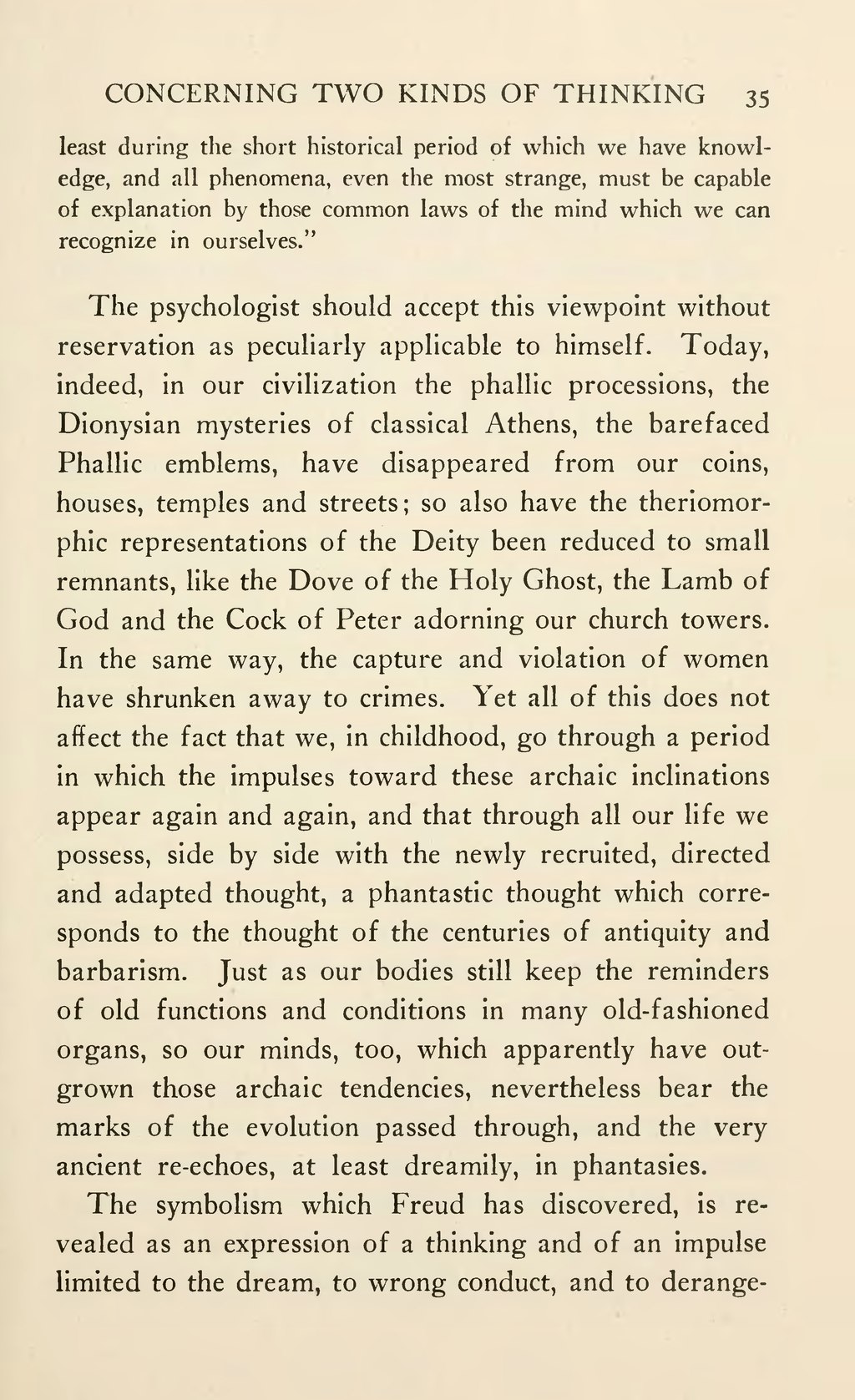The psychologist should accept this viewpoint without reservation as peculiarly applicable to himself. Today, indeed, in our civilization the phallic processions, the Dionysian mysteries of classical Athens, the barefaced Phallic emblems, have disappeared from our coins, houses, temples and streets; so also have the theriomorphic representations of the Deity been reduced to small remnants, like the Dove of the Holy Ghost, the Lamb of God and the Cock of Peter adorning our church towers. In the same way, the capture and violation of women have shrunken away to crimes. Yet all of this does not affect the fact that we, in childhood, go through a period in which the impulses toward these archaic inclinations appear again and again, and that through all our life we possess, side by side with the newly recruited, directed and adapted thought, a phantastic thought which corresponds to the thought of the centuries of antiquity and barbarism. Just as our bodies still keep the reminders of old functions and conditions in many old-fashioned organs, so our minds, too, which apparently have outgrown those archaic tendencies, nevertheless bear the marks of the evolution passed through, and the very ancient re-echoes, at least dreamily, in phantasies.
The symbolism which Freud has discovered, is revealed as an expression of a thinking and of an impulse limited to the dream, to wrong conduct, and to derange-
